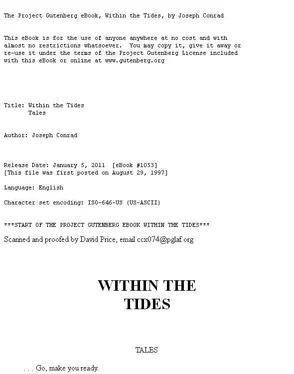“It seems that ructions had come in the basement of that boarding-house, and the widow lady had turned on him (being jealous mad), to the extent of talking of the police. That Mr. Stafford couldn’t stand; so he cleared out like a scared stag, and there he was, chucked into the streets, so to speak. Cloete looked so savage as he went to and fro that he hadn’t the spunk to tackle him; but George seemed a softer kind to his eye. He would have been glad of half a quid, anything. . . I’ve had misfortunes, he says softly, in his demure way, which frightens George more than a row would have done. . . Consider the severity of my disappointment, he says. . .
“George, instead of telling him to go to the devil, loses his head. . . I don’t know you. What do you want? he cries, and bolts up-stairs to Cloete. . . . Look what’s come of it, he gasps; now we are at the mercy of that horrid fellow. . . Cloete tries to show him that the fellow can do nothing; but George thinks that some sort of scandal may be forced on, anyhow. Says that he can’t live with that horror haunting him. Cloete would laugh if he weren’t too weary of it all. Then a thought strikes him and he changes his tune. . . Well, perhaps! I will go down-stairs and send him away to begin with. . . He comes back. . . He’s gone. But perhaps you are right. The fellow’s hard up, and that’s what makes people desperate. The best thing would be to get him out of the country for a time. Look here, the poor devil is really in want of employment. I won’t ask you much this time: only to hold your tongue; and I shall try to get your brother to take him as chief officer. At this George lays his arms and his head on his desk, so that Cloete feels sorry for him. But altogether Cloete feels more cheerful because he has shaken the ghost a bit into that Stafford. That very afternoon he buys him a suit of blue clothes, and tells him that he will have to turn to and work for his living now. Go to sea as mate of the Sagamore . The skunk wasn’t very willing, but what with having nothing to eat and no place to sleep in, and the woman having frightened him with the talk of some prosecution or other, he had no choice, properly speaking. Cloete takes care of him for a couple of days. . . Our arrangement still stands, says he. Here’s the ship bound for Port Elizabeth; not a safe anchorage at all. Should she by chance part from her anchors in a north-east gale and get lost on the beach, as many of them do, why, it’s five hundred in your pocket—and a quick return home. You are up to the job, ain’t you?
“Our Mr. Stafford takes it all in with downcast eyes. . . I am a competent seaman, he says, with his sly, modest air. A ship’s chief mate has no doubt many opportunities to manipulate the chains and anchors to some purpose. . . At this Cloete thumps him on the back: You’ll do, my noble sailor. Go in and win. . .
“Next thing George knows, his brother tells him that he had occasion to oblige his partner. And glad of it, too. Likes the partner no end. Took a friend of his as mate. Man had his troubles, been ashore a year nursing a dying wife, it seems. Down on his luck. . . George protests earnestly that he knows nothing of the person. Saw him once. Not very attractive to look at. . . And Captain Harry says in his hearty way, That’s so, but must give the poor devil a chance. . .
“So Mr. Stafford joins in dock. And it seems that he did manage to monkey with one of the cables—keeping his mind on Port Elizabeth. The riggers had all the cable ranged on deck to clean lockers. The new mate watches them go ashore—dinner hour—and sends the ship-keeper out of the ship to fetch him a bottle of beer. Then he goes to work whittling away the forelock of the forty-five-fathom shackle-pin, gives it a tap or two with a hammer just to make it loose, and of course that cable wasn’t safe any more. Riggers come back—you know what riggers are: come day, go day, and God send Sunday. Down goes the chain into the locker without their foreman looking at the shackles at all. What does he care? He ain’t going in the ship. And two days later the ship goes to sea. . . ”
At this point I was incautious enough to breathe out another “I see,” which gave offence again, and brought on me a rude “No, you don’t”—as before. But in the pause he remembered the glass of beer at his elbow. He drank half of it, wiped his mustaches, and remarked grimly—
“Don’t you think that there will be any sea life in this, because there ain’t. If you’re going to put in any out of your own head, now’s your chance. I suppose you know what ten days of bad weather in the Channel are like? I don’t. Anyway, ten whole days go by. One Monday Cloete comes to the office a little late—hears a woman’s voice in George’s room and looks in. Newspapers on the desk, on the floor; Captain Harry’s wife sitting with red eyes and a bag on the chair near her. . . Look at this, says George, in great excitement, showing him a paper. Cloete’s heart gives a jump. Ha! Wreck in Westport Bay. The Sagamore gone ashore early hours of Sunday, and so the newspaper men had time to put in some of their work. Columns of it. Lifeboat out twice. Captain and crew remain by the ship. Tugs summoned to assist. If the weather improves, this well-known fine ship may yet be saved. . . You know the way these chaps put it. . . Mrs. Harry there on her way to catch a train from Cannon Street. Got an hour to wait.
“Cloete takes George aside and whispers: Ship saved yet! Oh, damn! That must never be; you hear? But George looks at him dazed, and Mrs. Harry keeps on sobbing quietly: . . . I ought to have been with him. But I am going to him. . . We are all going together, cries Cloete, all of a sudden. He rushes out, sends the woman a cup of hot bovril from the shop across the road, buys a rug for her, thinks of everything; and in the train tucks her in and keeps on talking, thirteen to the dozen, all the way, to keep her spirits up, as it were; but really because he can’t hold his peace for very joy. Here’s the thing done all at once, and nothing to pay. Done. Actually done. His head swims now and again when he thinks of it. What enormous luck! It almost frightens him. He would like to yell and sing. Meantime George Dunbar sits in his corner, looking so deadly miserable that at last poor Mrs. Harry tries to comfort him, and so cheers herself up at the same time by talking about how her Harry is a prudent man; not likely to risk his crew’s life or his own unnecessarily—and so on.
“First thing they hear at Westport station is that the life-boat has been out to the ship again, and has brought off the second officer, who had hurt himself, and a few sailors. Captain and the rest of the crew, about fifteen in all, are still on board. Tugs expected to arrive every moment.
“They take Mrs. Harry to the inn, nearly opposite the rocks; she bolts straight up-stairs to look out of the window, and she lets out a great cry when she sees the wreck. She won’t rest till she gets on board to her Harry. Cloete soothes her all he can. . . All right; you try to eat a mouthful, and we will go to make inquiries.
“He draws George out of the room: Look here, she can’t go on board, but I shall. I’ll see to it that he doesn’t stop in the ship too long. Let’s go and find the coxswain of the life-boat. . . George follows him, shivering from time to time. The waves are washing over the old pier; not much wind, a wild, gloomy sky over the bay. In the whole world only one tug away off, heading to the seas, tossed in and out of sight every minute as regular as clockwork.
“They meet the coxswain and he tells them: Yes! He’s going out again. No, they ain’t in danger on board—not yet. But the ship’s chance is very poor. Still, if the wind doesn’t pipe up again and the sea goes down something might be tried. After some talk he agrees to take Cloete on board; supposed to be with an urgent message from the owners to the captain.
Читать дальше












